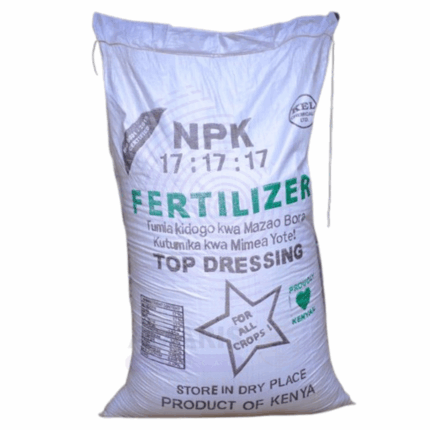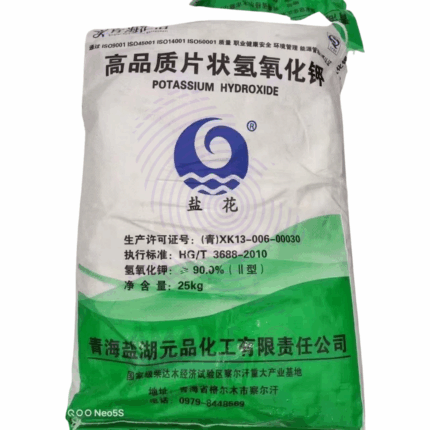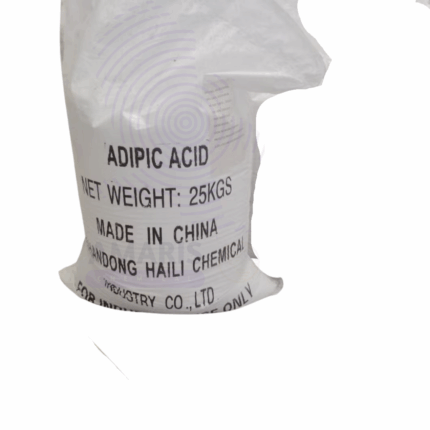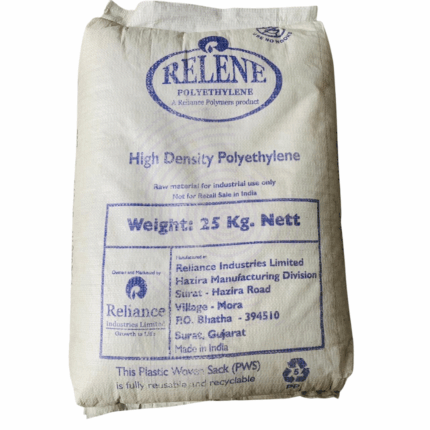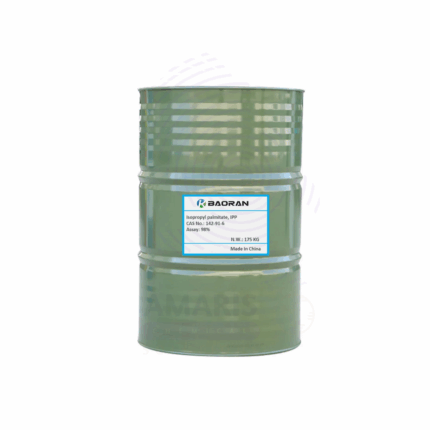LLDPE Roto T3804U MFI/MFR
Whatsapp Order
LLDPE Roto T3804U MFI/MFR is a linear low-density polyethylene resin designed specifically for rotational molding applications. It offers excellent melt flow characteristics (MFI/MFR) that facilitate even melting and smooth flow in the mold, producing parts with uniform thickness and good mechanical properties. This grade provides superior impact strength, flexibility, and chemical resistance, making it ideal for manufacturing large hollow items such as tanks, containers, and playground equipment. Its tailored flow properties enable high-quality surface finishes and improved production efficiency in roto molding processes.
Description
Table of Contents
Toggle
LLDPE Roto T3804U MFI/MFR
Primary Uses
- Rotational Molding
- Widely used in producing large hollow and complex-shaped items like water tanks, chemical storage containers, and industrial bins.
- Ensures even material distribution and high-quality surface finish in roto molded products.
- Industrial Containers
- Suitable for manufacturing chemical-resistant containers, drums, and bins that require durability and impact resistance.
- Agricultural and Outdoor Equipment
- Used for roto molding components like seeders, tanks, and playground equipment due to its toughness and weather resistance.
Secondary Uses
- Recreational Products
- Utilized for manufacturing kayaks, coolers, and other outdoor recreational goods that benefit from toughness and light weight.
- Custom Fabrication
- Employed in specialized molded parts requiring precise control over thickness and mechanical performance.
- Automotive Applications
- Occasionally used for large, hollow automotive components and protective casings where roto molding is preferred.
PRODUCT KEY FEATURES
- Basic Identification Attributes
- Chemical Name (IUPAC): Polyethylene, linear low-density
- Common/Trade Name: LLDPE Roto T3804U
- CAS Number: 9002-88-4
- HS Code: 3901.20.00
- Synonyms: Linear low-density polyethylene resin; LLDPE resin; Rotomolding grade LLDPE
- Physical & Chemical Properties
- Physical State: Powder or granular resin suitable for rotational molding
- Color & Odor: Natural (translucent or white); odorless
- Melt Flow Index (MFI/MFR): Typically 3-7 g/10 min (specific to grade)
- Density: Approx. 0.92 g/cm³
- Mechanical Properties: High impact strength, good flexibility
- Processing Temperature: Rotational molding range 230–280°C
- Safety & Hazard Attributes
- GHS Classification: Not hazardous under normal handling and use
- Toxicity: Non-toxic, inert polymer
- Exposure Limits: No specific occupational exposure limits; follow standard industrial hygiene
- Storage & Handling Attributes
- Storage Conditions: Store in dry, cool, and well-ventilated areas away from moisture and sunlight
- Container Type: Packaged in sealed bags or boxes on pallets
- Shelf Life: Stable for multiple years if stored correctly
- Handling Precautions: Minimize dust generation; avoid contamination
- Regulatory & Compliance Attributes
- Complies with applicable food contact and chemical safety regulations (FDA, EU) where relevant
- Meets REACH, RoHS, and other environmental safety standards
- Environmental & Health Impact
- Biodegradability: Non-biodegradable but recyclable through conventional polyethylene recycling streams
- Ecotoxicity: Low environmental toxicity when properly managed
- Bioaccumulation: Not applicable
- Carcinogenicity/Mutagenicity: Not classified as carcinogenic
SAFETY HANDLING PRECAUTIONS
- Safety Handling Precautions
- PPE Required: Gloves and dust mask recommended during handling of large quantities
- Handling Guidelines: Use adequate ventilation to avoid inhalation of dust
- Storage Measures: Keep containers tightly closed and dry
- First Aid Measures
- Inhalation: Move to fresh air if dust causes irritation
- Skin Contact: Wash skin with soap and water if irritation occurs
- Eye Contact: Rinse eyes thoroughly with water if dust causes irritation
- Ingestion: Not applicable
- Firefighting Measures
- Fire Hazards: Combustible solid; emits dense smoke when burned
- Extinguishing Media: Water spray, foam, dry chemical, or carbon dioxide
- Special Precautions: Avoid inhalation of combustion fumes
- Hazardous Combustion Products: Carbon monoxide, carbon dioxide, hydrocarbons
Related products
Adipic Acid
HDPE Blow HDB5502
HDPE Blow HDB5502 is a high-density polyethylene resin specifically formulated for blow molding applications. It is a semi-crystalline thermoplastic polymer characterized by excellent strength-to-density ratio, high chemical resistance, and superior processability in blow molding equipment. This grade exhibits high stiffness, good environmental stress crack resistance (ESCR), and excellent impact resistance, making it ideal for manufacturing durable hollow containers and complex-shaped products. The resin is supplied as granular pellets with consistent melt flow and homogeneity, optimized for efficient molding cycles and high throughput.
HDPE Pipe HS CRP
HDPE Pipe HS CRP is a high-density polyethylene (HDPE) pipe grade resin specially designed for the manufacture of high-performance pressure pipes. This grade corresponds to PE 100 classification, meaning it has enhanced strength and durability characteristics suitable for high-pressure applications. The resin exhibits excellent resistance to slow crack growth, outstanding chemical resistance, and superior impact strength even at low temperatures. HDPE PE 100 pipe is widely used in demanding infrastructure, water supply, gas distribution, and industrial piping systems due to its long service life, flexibility, and corrosion resistance.
Isopropyl Palmitate
Isopropyl Palmitate IPP is a clear, colorless to pale yellow oily liquid formed by the esterification of isopropyl alcohol and palmitic acid. It has a mild odor and is widely used in cosmetic, pharmaceutical, and industrial formulations as an emollient, lubricant, and solvent. IPP is valued for its excellent skin absorption, non-greasy feel, and ability to improve texture and spreadability of topical products.
LLDPE film Opalene F20015
LLDPE film Opalene F20015 is a high-quality linear low-density polyethylene (LLDPE) film known for its excellent clarity, toughness, and flexibility. It is produced using linear low-density polyethylene resin, offering superior mechanical properties and puncture resistance compared to conventional low-density polyethylene films. Opalene F20015 is widely used in packaging applications where strength, transparency, and sealability are critical. Its balanced properties make it suitable for various industrial and consumer packaging needs.
PVC K67
PVC K67 is a general-purpose polyvinyl chloride resin with a K-value of 67, indicating a medium molecular weight suitable for rigid applications. It is a white, free-flowing powder commonly used in the production of rigid PVC products such as pipes, fittings, profiles, and sheets. PVC K67 offers excellent processability, good mechanical strength, chemical resistance, and dimensional stability, making it ideal for a wide range of industrial and construction applications.
PVC Westlake 1091
PVC Westlake 1091 is a high-quality, rigid polyvinyl chloride resin known for its excellent clarity, strength, and processability. It is widely used in manufacturing durable and weather-resistant PVC products. This resin grade offers good thermal stability, chemical resistance, and dimensional stability, making it suitable for a broad range of applications including construction materials, packaging, and consumer goods.
Styrene Polymer Copolymer (230kg)
Styrene Polymer Copolymer is a high-performance copolymer consisting primarily of styrene combined with other monomers such as acrylonitrile or butadiene, designed to offer enhanced mechanical properties, chemical resistance, and processability. Supplied in bulk packaging of 230kg, it is widely used in plastics, adhesives, coatings, and rubber industries. This copolymer provides excellent toughness, thermal stability, and versatility, making it suitable for demanding industrial applications.


 Preservatives(food)
Preservatives(food) Flavor Enhancers
Flavor Enhancers Acidulants
Acidulants Sweeteners
Sweeteners Antioxidants
Antioxidants Colorants(food)
Colorants(food) Nutraceutical Ingredients (food)
Nutraceutical Ingredients (food) Nutrient Supplements
Nutrient Supplements Emulsifiers
Emulsifiers
 Collectors
Collectors Dust Suppressants
Dust Suppressants Explosives and Blasting Agents
Explosives and Blasting Agents Flocculants and Coagulants
Flocculants and Coagulants Frothers
Frothers Leaching Agents
Leaching Agents pH Modifiers
pH Modifiers Precious Metal Extraction Agents
Precious Metal Extraction Agents
 Antioxidants(plastic)
Antioxidants(plastic) Colorants (Pigments, Dyes)
Colorants (Pigments, Dyes) Fillers and Reinforcements
Fillers and Reinforcements Flame Retardants
Flame Retardants Monomers
Monomers Plasticizers
Plasticizers Polymerization Initiators
Polymerization Initiators Stabilizers (UV, Heat)
Stabilizers (UV, Heat)
 Antifoaming Agents
Antifoaming Agents Chelating Agents
Chelating Agents Coagulants and Flocculants
Coagulants and Flocculants Corrosion Inhibitors
Corrosion Inhibitors Disinfectants and Biocides
Disinfectants and Biocides Oxidizing Agents
Oxidizing Agents pH Adjusters
pH Adjusters Scale Inhibitors( water)
Scale Inhibitors( water)
 Antioxidants(cosmetic)
Antioxidants(cosmetic) Emollients
Emollients Fragrances and Essential Oils
Fragrances and Essential Oils Humectants
Humectants Preservatives
Preservatives Surfactants(cosmetic)
Surfactants(cosmetic) Thickeners
Thickeners UV Filters
UV Filters
 Fertilizers
Fertilizers Soil Conditioners
Soil Conditioners Plant Growth Regulators
Plant Growth Regulators Animal Feed Additives
Animal Feed Additives Biostimulants
Biostimulants Pesticides (Herbicides, Insecticides, Fungicides)
Pesticides (Herbicides, Insecticides, Fungicides)
 Active Pharmaceutical Ingredients (APIs)
Active Pharmaceutical Ingredients (APIs) Excipients
Excipients Solvents(pharmaceutical)
Solvents(pharmaceutical) Antibiotics
Antibiotics Antiseptics and Disinfectants
Antiseptics and Disinfectants Vaccine Adjuvants
Vaccine Adjuvants Nutraceutical Ingredients (pharmaceutical)
Nutraceutical Ingredients (pharmaceutical) Analgesics & Antipyretics
Analgesics & Antipyretics
 Analytical Reagents
Analytical Reagents Solvents(lab)
Solvents(lab) Chromatography Chemicals
Chromatography Chemicals Spectroscopy Reagents
Spectroscopy Reagents microbiology-and-cell-culture-reagents
microbiology-and-cell-culture-reagents Molecular Biology Reagents
Molecular Biology Reagents Biochemical Reagents
Biochemical Reagents Inorganic and Organic Standards
Inorganic and Organic Standards Laboratory Safety Chemicals
Laboratory Safety Chemicals Specialty Laboratory Chemicals(Special Laboratory Equipment)
Specialty Laboratory Chemicals(Special Laboratory Equipment)
 Demulsifiers
Demulsifiers Hydraulic Fracturing Fluids
Hydraulic Fracturing Fluids Scale Inhibitors(oil)
Scale Inhibitors(oil) Surfactants(oil)
Surfactants(oil) Drilling Fluids
Drilling Fluids
 Dyes and Pigments
Dyes and Pigments Bleaching Agents
Bleaching Agents Softening Agents
Softening Agents Finishing Agents
Finishing Agents Antistatic Agents
Antistatic Agents
 Admixtures
Admixtures Waterproofing Agents
Waterproofing Agents Sealants and Adhesives
Sealants and Adhesives Curing Compounds
Curing Compounds Concrete Repair Chemicals
Concrete Repair Chemicals Anti-Corrosion Coatings
Anti-Corrosion Coatings
 Surfactants(cleaning)
Surfactants(cleaning) Builders
Builders Enzymes
Enzymes Solvents (Cleaning)
Solvents (Cleaning) Fragrances
Fragrances
 Electronic Chemicals
Electronic Chemicals Catalysts
Catalysts Lubricants
Lubricants Photographic Chemicals
Photographic Chemicals Refrigerants
Refrigerants Automotive chemicals
Automotive chemicals Pyrotechnic Chemicals
Pyrotechnic Chemicals
 Biodegradable Surfactants
Biodegradable Surfactants Bio-based Solvents
Bio-based Solvents Renewable Polymers
Renewable Polymers Carbon Capture Chemicals
Carbon Capture Chemicals Wastewater Treatment Chemicals
Wastewater Treatment Chemicals
 Pigments
Pigments Solvents(paint)
Solvents(paint) Specialty Coatings
Specialty Coatings Binders/Resins
Binders/Resins Additives
Additives Driers
Driers Anti-Corrosion Agents
Anti-Corrosion Agents Functional Coatings
Functional Coatings Application-Specific Coatings
Application-Specific Coatings
 Fresh Herbs
Fresh Herbs Ground Spices
Ground Spices Whole Spices
Whole Spices Spice Blends
Spice Blends Dried Herbs
Dried Herbs
 Leavening Agents
Leavening Agents Dough Conditioners
Dough Conditioners Flour Treatments
Flour Treatments Fat Replacers
Fat Replacers Decoratives
Decoratives Preservatives(baking)
Preservatives(baking)
 Plasticizers & Softeners
Plasticizers & Softeners Reinforcing Agents
Reinforcing Agents Adhesion Promoters
Adhesion Promoters Vulcanizing Agents
Vulcanizing Agents Antidegradants
Antidegradants Blowing Agents
Blowing Agents Fillers & Extenders
Fillers & Extenders Accelerators & Retarders
Accelerators & Retarders
